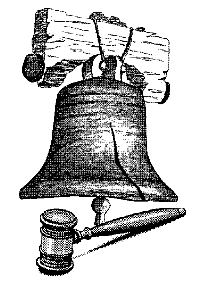
Perhaps one of the most shameless examples is a recent column by Bill O'Reilly, which is ostensibly constructed around a quote from Benjamin Franklin stating that "when the people find that they can vote themselves money, that will herald the end of the republic." The article demonstrates the questionable trend of lifting irrelevant and often misleading tidbits of information and haphazardly disguising them as critiques of non-conservative ideas. It is quite a stretch to assert that this quote reveals Benjamin Franklin's opposition to affordable healthcare, and the spurious argument is not saved by Mr. O'Reilly's attempt to link the ideas by saying that "free healthcare is free money." Even if one were to overlook the logical fallacies in this proposition, it completely misses the mark as Congress is far from considering healthcare coverage that is completely "free."
Moreover, throughout his article Mr. O'Reilly unfairly paints healthcare reform as an attempt to provide free medical care to the the poor. In doing this, he purposefully and disingenuously chooses to ignore the large proportion of the middle class who will benefit from lower premiums, more access to affordable care, and less trepidation about the health of their families in turbulent economic times. It is unclear from the article how these people "continue to fail to pursue happiness effectively."
The article ends with the poignant flourish that "The argument [for healthcare reform] has its emotion. But remember, Benjamin Franklin would not have supported national health care." Such a humorous conclusion is far from assured and the obvious appeal to patriotic love for a revered national figure to conceal an ill-supported argument is readily apparent. The ongoing campaign of misinformation about healthcare reform does nothing to further the debate about how to actually accomplish it.
Perhaps the opponents to the current proposals would be better served by constructively contributing to the process and developing concrete, workable plans of their own. Confusion and the perversion of facts and events serve only to create fear among those who should be level-headed. And to borrow a quote from another Founding Father:
"Fear is the foundation of most governments; but it is so sordid and brutal a passion, and renders men in whose breasts it predominates so stupid and miserable that Americans will not be likely to approve of any political institution which is founded on it." - John Adams


No comments:
Post a Comment